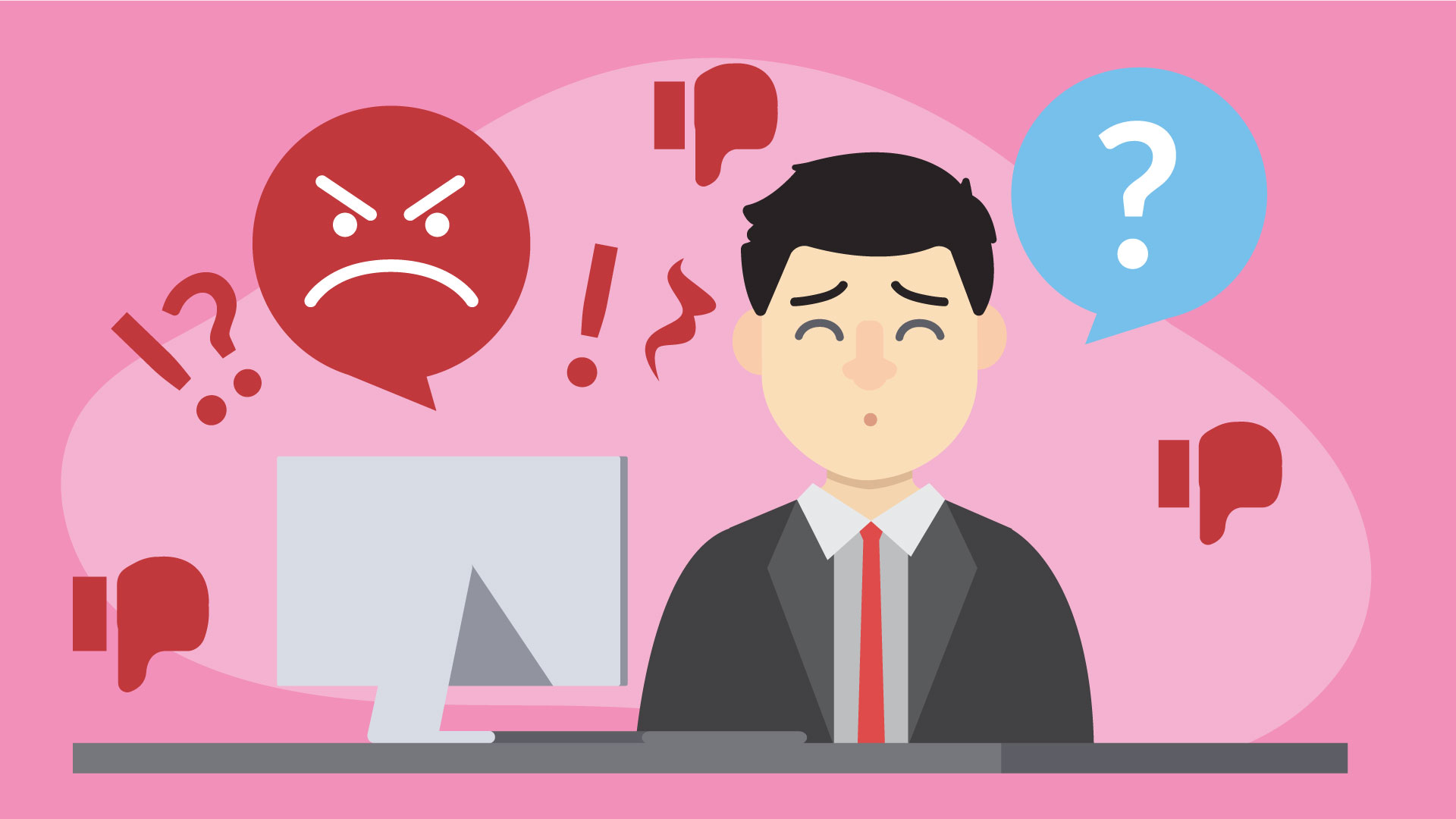So your customer wasn’t happy with your product or service? First of all, don’t panic.
The truth is, if you’re in business for any amount of time – you’re going to have unhappy customers at some point. It’s inevitable.
Yet, if you put your heart and soul into the products and services you offer it can be heartbreaking when the customers you work so hard to please aren’t happy. It’s easy to get defensive or angry, especially when you don’t feel like you’ve done anything wrong.
Instead, take a deep breath and see it as an opportunity to truly shine.
Your worst customer could actually be a blessing in disguise. If you handle them well, this can be a chance to build a lifelong advocate. Plus, it’s also a way to show that customer (and everyone else who might be watching) how professional you can be during the worst of situations.
Here are a few important things that you can learn from your unhappy customer.
Customer Complaints Help Us See Our Flaws
Every time a customer criticizes you – take a moment to ask yourself: do they have a point?
Yikes. I know it’s hard to be self critical and admit your flaws. Yet, it’s essential for business owners. We cannot experience growth until we can step back and be honest about what we need to improve.
Listen to the criticisms that your unhappy customer is making of your product or service. What was lacking? What went wrong? Then, think about how you could improve or change about your product or service in order to avoid this problem in the future.
Complaints teach us what’s most important to our customers. When you let unhappy customers tell you what’s most crucial to them, you’ll know exactly where to get the best return on investment when making improvements.
It often takes a complaint from an unhappy customer to introduce a business to its own weakness – since our familiarity (and our ego) can stop us from seeing these flaws ourselves.
Complaints Are Better Than the Alternative
The only thing worse than a customer complaining is one who simply leaves and never purchases your product again – without telling you why.
According to research by Esteban Kolsky, 67% of customers mention a bad experience as a reason why they stopped buying from a brand.
However, only 1 in 26 unhappy customers complain.
So, this means that the absence of negative feedback is not necessarily a sign that all of your customers are happy. They might be pretty disappointed with your product or service, but they haven’t said anything about it. This leaves you with no way to rectify the issue and no insight on how you can improve.
This is why successful companies seek out feedback from their customers in the form of surveys and reviews, and make it easy for customers to contact support at any time. That negative feedback is so much more valuable than a customer who disappears without a word.
Expectations Are Just as Important As the Product Itself
Sometimes it doesn’t necessarily mean changing the product itself.
Instead, you may need to focus on correcting an unclear expectation of the product which has led to confusion and disappointment.
This means taking a look at your marketing, your product or service descriptions and the information available to customers before they make a purchase. Are you making everything 100% clear? Is there any room for misunderstanding?
Even If The Complaint Seems Invalid, It’s Still Worth Addressing
It might be a silly, petty complaint. It might be the customer’s fault. You might not have done anything wrong. But that’s okay.
It can be incredibly frustrating to deal with a situation like this when you are not in the wrong, but it’s still important to approach it with the right mindset. After all, it’s not about the complaint itself – it’s about how you deal with it.
Even if the customer is totally wrong, this is still an opportunity to make your company look amazing. Respond with grace, empathy and kindness.Offer them an explanation to clear up the misunderstanding and a fair solution.
Sometimes further action is not even necessary. In fact, in many cases unhappy customers just want their issues to be acknowledged. According to research by New Voice Media, “feeling unappreciated” is the #1 reason why customers switch away from products and services. The most important thing is making them feel heard and emphasizing that you are making changes to avoid the issue in the future.
Important Things to Remember
Whenever you come up against an unsatisfied customer don’t forget:
- Take the time to listen to the customer so they feel they are being heard. Don’t argue, don’t contradict, just listen.
- Don’t get defensive. Remain calm and neutral and don’t make excuses.
- Explain why the issue happened, so that the customer can understand what went wrong. (Clarify that it’s not an excuse, merely an explanation.)
- Offer a solution that resolves the issue, or compensates the customer in some way. After all, your customers understand that no product or service is perfect. Many will be willing to forgive a flaw, if the issue is dealt with quickly and effectively.
- Follow up with the customer a little while later to make sure they are happy with the way the situation was resolved. (This really lets them know you care – yet not many companies do it.
- And most importantly, always be there for your customers, when they need you the most.
Unhappy customers really are a source of opportunity – showing your customers that when things go wrong; you’re there to help – is a sure way to differentiate your co’s commitment to customer service.





